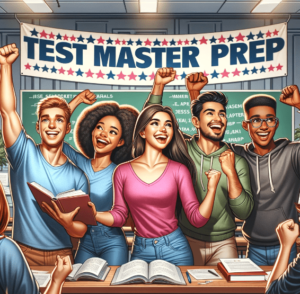The Civil Services Examination (CSE) in India, a formidable test of knowledge, aptitude, and perseverance, serves as the gateway to a prestigious career in public administration. Conducted annually by the Union Public Service Commission (UPSC), the CSE is a highly competitive examination, attracting the brightest minds across the nation. This examination, spanning a rigorous year-long process, is a monumental undertaking, demanding meticulous planning and unwavering dedication.
The CSE is structured into three distinct phases, each playing a critical role in determining the final selection of candidates. These phases are the Preliminary Exam, the Mains Exam, and the Personality Test, or Interview. Each stage presents unique challenges, testing different facets of the candidate’s knowledge and abilities. Success in the CSE is not merely about memorizing facts; it demands a profound understanding of the complexities of Indian society, a strong grasp of current affairs, and the ability to articulate thoughts cogently.
Deciphering the Labyrinth: The Preliminary Exam
The Preliminary Exam is the initial hurdle in the CSE. This crucial first stage serves as a screening process, designed to filter a large pool of applicants down to a manageable number of candidates who will proceed to the subsequent Mains Exam.
The Preliminary Exam comprises two objective-type papers: General Studies Paper I and the Civil Service Aptitude Test (CSAT) in Paper II. General Studies Paper I covers a vast spectrum of topics, including History, Geography, Polity, Economics, and current affairs. CSAT, on the other hand, assesses candidates’ comprehension, reasoning, and analytical abilities, focusing on topics like logical reasoning, data interpretation, and decision-making. The exam pattern for the Preliminary Exam is as follows:
| Exam Component | Details |
|---|---|
| Total Papers | 2 Papers |
| Papers | 1. General Studies Paper-I 2. General Studies Paper-II (CSAT) |
| Number of Questions | GS Paper-I: 100 CSAT: 80 |
| Total Marks | GS Paper-I: 200 Marks CSAT: 200 Marks |
| Negative Marking | 1/3 of the marks for each incorrect answer |
| Time Allotted | GS Paper-I: 2 Hours (9:30 AM – 11:30 AM) CSAT: 2 Hours (2:30 PM – 4:30 PM) |
Both papers are conducted on the same day, and the scores of only the General Studies Paper I are considered for merit ranking. The CSAT is only a qualifying paper, meaning candidates must score a minimum of 33% to be eligible to appear for the Mains Exam. This qualifying nature emphasizes the importance of developing a balanced approach to the Preliminary Exam, prioritizing both General Studies Paper I for merit and CSAT for qualification.
We also Published
Navigating the Depth: The Mains Exam
The Mains Exam, the second stage of the CSE, is a grueling examination, testing candidates’ in-depth knowledge, analytical skills, and writing abilities. The Mains Exam features nine descriptive papers, with two qualifying papers (Paper A – Compulsory Indian Language and Paper B – English Language) and seven papers that contribute to the final ranking.
The Mains Exam papers are as follows:
| Paper Name | Time Duration | Total Marks | Nature of Paper |
|---|---|---|---|
| Paper A – Compulsory Indian Language | 3 hours | 300 | Qualifying in nature |
| Paper B – English Language | 3 hours | 300 | Qualifying in nature |
| Paper I – Essay | 3 hours | 250 | Considered for Merit |
| Paper II – General Studies I | 3 hours | 250 | Considered for Merit |
| Paper III – General Studies II | 3 hours | 250 | Considered for Merit |
| Paper IV – General Studies III | 3 hours | 250 | Considered for Merit |
| Paper V – General Studies IV | 3 hours | 250 | Considered for Merit |
| Paper VI – Optional Paper I | 3 hours | 250 | Considered for Merit |
| Paper VII – Optional Paper II | 3 hours | 250 | Considered for Merit |
The Mains Exam is a comprehensive assessment, delving into various aspects of general knowledge, analytical ability, and specialized knowledge through the chosen optional subjects. The scores from the seven merit-based papers contribute to the final ranking, making it crucial to perform well in each paper.
The Final Frontier: The Personality Test
The Personality Test, or Interview, is the final stage of the CSE. This crucial stage assesses the candidates’ suitability for a career in civil services, gauging their personality traits, communication skills, and overall suitability for the demanding role.
The Interview, conducted by a board of experts, assesses candidates on various dimensions, including:
- General Awareness: Understanding of current events, national and international issues, and their impact.
- Communication Skills: Clarity of expression, ability to articulate ideas, and confidence in speaking.
- Critical Thinking: Ability to analyze situations, form logical conclusions, and offer solutions.
- Leadership Qualities: Demonstrated potential for leadership, decision-making, and teamwork.
- Integrity and Ethics: Adherence to ethical principles and moral values.
- Social Awareness: Understanding of social issues, empathy, and sensitivity towards the needs of others.
The Interview carries a significant weight in the overall merit ranking, and a strong performance can substantially improve a candidate’s chances of securing a top rank. Effective preparation for the Personality Test involves self-awareness, thorough research, and practice in communicating confidently.
A Triumph of Preparation: Strategies for Success
Navigating the CSE requires a well-defined strategy, encompassing both short-term and long-term goals. Successful preparation for the CSE involves a multifaceted approach that balances the following key elements:
- Thorough Understanding of the Syllabus: Begin by meticulously analyzing the syllabus for each stage of the examination. Identify core topics, sub-topics, and areas of emphasis.
- Strategic Study Plan: Develop a comprehensive study plan, allocating sufficient time for each subject and stage of the examination. Incorporate regular revision sessions and mock tests.
- Engaging with Quality Study Material: Choose credible and up-to-date study material, including standard textbooks, reference books, online resources, and mock test papers.
- Developing Effective Note-Taking Techniques: Implement efficient note-taking methods, such as mind maps, concept maps, or summary notes, to condense key information and facilitate revision.
- Mastering Time Management: Develop strong time management skills, ensuring that each subject and topic receives adequate attention within the allocated time frame.
- Honing Analytical and Critical Thinking Skills: Cultivate analytical and critical thinking abilities through regular practice. Analyze articles, editorials, and opinion pieces, identifying arguments, perspectives, and logical flaws.
- Enhancing Written Communication Skills: Focus on improving writing skills, emphasizing clarity, conciseness, and coherence. Practice writing essays, answers to previous years’ questions, and mock tests to refine writing style.
- Staying Informed on Current Affairs: Regularly read newspapers, magazines, and online news sources to stay abreast of current events, national and international issues, and significant developments.
- Developing a Positive Mindset: Maintain a positive and optimistic outlook throughout the preparation journey. Embrace challenges as opportunities for growth and learning. Stay motivated and focused on your goals.
The CSE is an arduous but rewarding journey. Embracing these strategies, coupled with unwavering determination and a thirst for knowledge, can pave the way towards success in this prestigious examination, opening doors to a fulfilling career in the Indian civil service.
“The best way to predict the future is to create it.” – Abraham Lincoln
RESOURCES
- Want To Ace The Civil Services Examination In First Attempt?
- How to Start Preparation for the UPSC/ IAS Exam
- 16 Steps To Start Preparing for UPSC at Home
- UPSC Exam Notes: Online UPSC IAS Exam Preparation …
- UPSC Syllabus 2025 for Prelims, Mains & Interview
- All About UPSC | Civil Service IAS Exam Preparation
- Not sure how to start preparing for UPSC? Here is a head- …
- Your Ultimate UPSC Study Material To Crack IAS Exam
- UPSC Preparation From Zero Level [How-To-Guide]
- Preparing for UPSC Civil Services for the first time? Here …
- Books For IAS Exam Preparation






